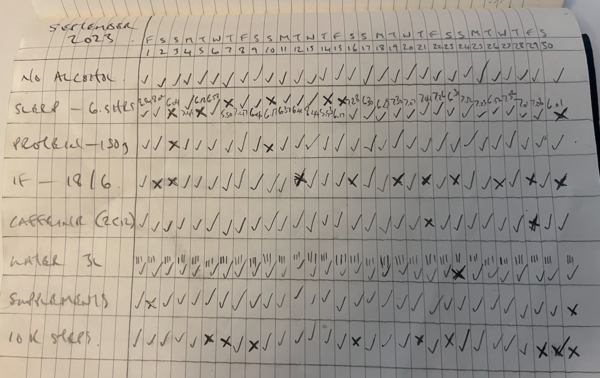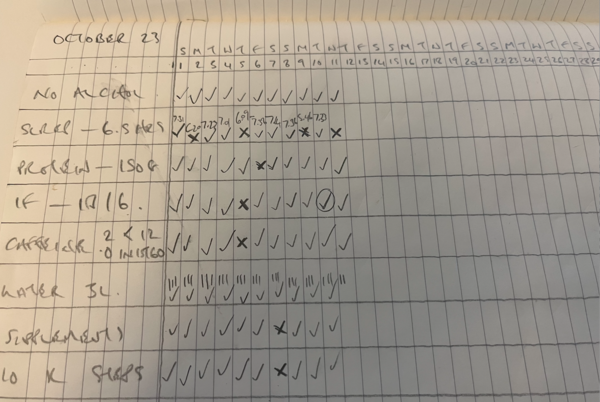I don’t often write a blog post to recommend one piece of content. Today, I’ll make an exception – so you have something great to watch going into the weekend.
Dana White | Overcoming The Leading Killer, Metabolic Syndrome
Dana White used to have high blood pressure, bad cholesterol, high triglycerides and sleep apnea. He was overweight. He would fall asleep in meetings and forget things easily.
His doctors prescribed many things, but nothing worked.
Fast forward ten weeks.
Blood pressure, triglycerides and cholesterol – all gold standard. Sleep apnea, gone. He lost 35 lbs, and now has abs. Fatigue, gone. He’s sharper than ever, and running four successful companies.
In his own words:
I jump out of bed everyday, ready to kick today’s ass. I feel great. And I love it.
In TEN WEEKS.
It’s an incredible story, and one which highlights that if you make your health a priority, and build the discipline you need to live the right lifestyle – you can completely change how you look and feel.
You might think how you feel now is fine – maybe even exactly how you should feel for your age. I’m going to go out on a limb – most likely, it’s not. In most cases, there’s another whole new version of you around the corner that can look and feel so much better.
The solution isn’t rocket science either:
- Sleep well
- Be physically active every day
- Eat mostly whole foods
- Prioritise protein
- Don’t eat too much
- Drink enough water
- Limit alcohol
- Limit caffeine
- Walk plenty
You know what’s surprising about that list? At least in my experience, it’s the opposite of what most people do. Really think about it. If you’re being intellectually honest, you’ll start to notice that.
And here’s the kicker. It doesn’t have to be 100% of the time. In fact, 100% is unsustainable and makes you miserable trying to reach it (trust me, I’ve tried hundreds of times).
80% is good enough. In fact, it’s perfect (that sounds odd to say huh?). It gets you the results, and allows you to have some balance.
50% isn’t good enough though. You have to commit more fully than that.
I’ve had a similar transformation to Dana. I look and feel so much better than I did a year ago. I’ve also improved a number of metabolic health markers in the last year.
I could never go back to my old lifestyle. I could never go back to how I looked and felt.
It’s not easy. But, like Dana said, Kate Moss was really onto something when she said ‘Nothing tastes as good as skinny feels’
Get my ideas straight to your inbox. Sign up for my newsletter below:







